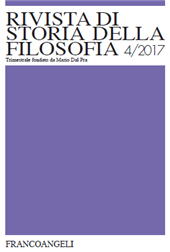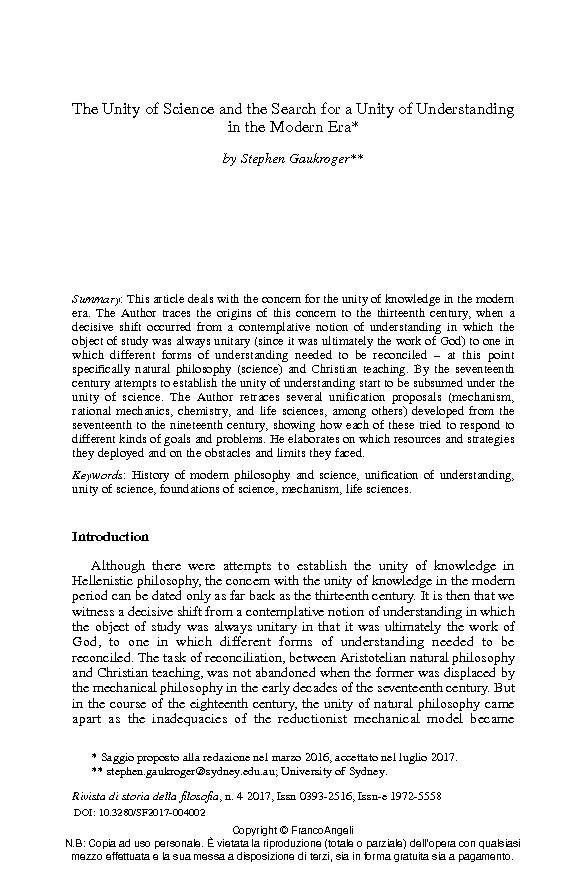The Unity of Science and the Search for a Unity of Understanding in the Modern Era.
553-573 p.
This article deals with the concern for the unity of knowledge in the modern era. The Author traces the origins of this concern to the thirteenth century, when a decisive shift occurred from a contemplative notion of understanding in which the object of study was always unitary (since it was ultimately the work of God) to one in which different forms of understanding needed to be reconciled - at this point specifically natural philosophy (science) and Christian teaching. By the seventeenth century attempts to establish the unity of understanding start to be subsumed under the unity of science. The Author retraces several unification proposals (mechanism, rational mechanics, chemistry, and life sciences, among others) developed from the seventeenth to the nineteenth century, showing how each of these tried to respond to different kinds of goals and problems. He elaborates on which resources and strategies they deployed and on the obstacles and limits they faced. [Publishers' text].
-
Articoli dello stesso fascicolo (disponibili singolarmente)
-
Informazioni
Codice DOI: 10.3280/SF2017-004002
ISSN: 1972-5558



